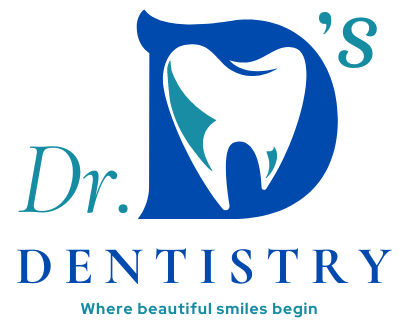How Root Canals and Crowns Can Change Your Life Forever
Introduction
When it comes to dental health, most people only think about brushing, flossing, and maybe the occasional cavity. But what if I told you that a couple of simple dental procedures could change your life forever? Yes, we’re talking about root canals and crowns. These aren’t just treatments to fix dental problems—they are life-changers. Whether you’re dealing with pain, discomfort, or the emotional toll of an unhealthy smile, root canals and crowns can provide relief, restore your confidence, and significantly improve your quality of life.
Understanding Root Canals and Life-Changing Impact of Root Canals and Crowns
What is a Root Canal?
A root canal is a dental procedure designed to save a tooth that is severely decayed or infected. Inside each tooth is a soft tissue called the pulp, which contains nerves and blood vessels. When this pulp becomes infected due to deep decay or injury, it can cause intense pain and lead to more severe issues like abscesses. The root canal procedure involves removing the infected pulp, cleaning the inside of the tooth, and then sealing it to prevent further infection.
Signs You Might Need a Root Canal
Knowing when you might need a root canal can help you address issues before they worsen. Here are some common signs:
- Persistent pain: If you have a toothache that doesn’t go away, it might be a sign of pulp damage.
- Sensitivity to hot or cold: If your tooth is overly sensitive to temperatures, it could indicate an issue with the nerve.
- Swollen gums: Swelling around the affected tooth is another common symptom.
The Root Canal Procedure Explained
Understanding what happens during a root canal can ease your anxiety. Here’s a step-by-step breakdown:
- Diagnosis: Your dentist will take X-rays to determine the extent of the infection.
- Anesthesia: Local anesthesia is applied to numb the area, so you don’t feel pain during the procedure.
- Pulp removal: The dentist drills into the tooth to remove the infected pulp.
- Cleaning: The inside of the tooth is thoroughly cleaned and disinfected.
- Filling: The tooth is then filled and sealed with a material to prevent further infection.
- Restoration: In many cases, a crown is placed on top of the treated tooth to restore its function and appearance.
Recovery from a root canal typically involves some mild discomfort, which can be managed with over-the-counter pain relievers. Most people can return to their normal activities the next day.
Understanding Crowns and Life-Changing Impact of Root Canals and Crowns
What is a Dental Crown?
A dental crown is a cap that is placed over a tooth to restore its shape, size, and strength. Crowns are commonly used after a root canal to protect the treated tooth, but they can also be used for other purposes, such as restoring a broken tooth or covering a dental implant.
Why You Might Need a Crown
Crowns are versatile and serve several purposes in dental care:
- Protecting a weak tooth: If a tooth is weakened by decay or has undergone a root canal, a crown can provide the necessary support.
- Restoring a broken tooth: Crowns can be used to restore a tooth that is broken or severely worn down, allowing you to bite and chew properly.
Different Types of Dental Crowns
There are several types of dental crowns, each with its benefits:
- Porcelain crowns and Life-Changing Impact of Root Canals and Crowns: These are highly popular due to their natural appearance. They’re often used for front teeth where aesthetics are a priority.
- Metal crowns: Made from metals like gold or platinum, these crowns are extremely durable and are usually used for molars.
- Porcelain-fused-to-metal (PFM) crowns: These combine the strength of metal with the natural look of porcelain, offering a balance between durability and aesthetics.
The Crown Placement Process
Getting a crown typically requires two visits to the dentist:
- Preparation: The dentist will first numb the tooth and surrounding area. The tooth is then shaped to allow the crown to fit securely and Life-Changing Impact of Root Canals and Crowns.
- Impressions: An impression of the tooth is taken to create a custom crown. You’ll receive a temporary crown to wear in the meantime.
- Fitting: On your second visit, the temporary crown is removed, and the permanent crown is cemented in place.
Aftercare is crucial to ensure the longevity of your crown. This includes avoiding hard foods that could damage the crown and maintaining good oral hygiene.
How Root Canals Can Save Your Teeth
Preventing Tooth Loss
One of the most significant benefits of a root canal is that it can save your tooth from extraction. Keeping your natural teeth is always preferable, as it maintains your bite and helps prevent other teeth from shifting.
Relief from Chronic Pain
If you’ve been suffering from tooth pain, a root canal can provide much-needed relief. Once the infected pulp is removed, the pain should subside, allowing you to enjoy life without the constant discomfort.
Improving Overall Oral Health
By addressing the infection and sealing the tooth, root canals prevent the spread of bacteria to other parts of your mouth, contributing to better overall oral health.
How Crowns Can Transform Your Smile
Restoring Functionality
Crowns restore the function of your teeth, allowing you to bite, chew, and speak properly. This is especially important for molars, which endure a lot of pressure during eating.
Enhancing Aesthetics
If you’re self-conscious about a damaged or discolored tooth, a crown can improve the appearance of your smile. With options like porcelain crowns, you can achieve a natural look that blends seamlessly with your other teeth.
Boosting Confidence and Self-Esteem
A healthy, beautiful smile can do wonders for your self-confidence. Crowns can help you feel more comfortable in social situations, allowing you to smile freely without worrying about the appearance of your teeth and Life-Changing Impact of Root Canals and Crowns.
**The
Long-Term Benefits of Root Canals and Crowns**
Longevity and Durability
Both root canals and crowns are durable solutions that can last for many years with proper care. This makes them a cost-effective option in the long run, as they reduce the need for more extensive dental work in the future.
Cost-Effectiveness
While the initial cost of a root canal and crown might seem high, they are an investment in your long-term oral health. By saving your natural tooth and avoiding more complex procedures, you’re likely to save money in the long run.
Improving Quality of Life
By alleviating pain, restoring function, and enhancing your smile, root canals and crowns can significantly improve your overall quality of life. You’ll be able to eat your favorite foods, smile with confidence, and live without the constant worry of dental issues and Life-Changing Impact of Root Canals and Crowns.
Common Misconceptions about Root Canals and Crowns
Root Canals are Painful
Thanks to modern dental techniques and anesthesia, root canals are no more painful than getting a filling. The procedure actually relieves pain by removing the infected tissue.
Crowns are Only for Cosmetic Purposes
While crowns can enhance the appearance of your teeth, they also play a crucial role in protecting and restoring damaged teeth. They are essential for maintaining dental health and function.
Only Older Adults Need Root Canals and Crowns
Root canals and crowns are not just for older adults. Anyone with severe tooth decay or damage may need these procedures, regardless of age.
The Role of Modern Dentistry in Root Canals and Crowns
Advancements in Dental Technology
Modern dentistry has made root canals and crowns more effective and comfortable than ever before. Techniques like digital imaging and 3D printing ensure precise results and a better overall experience.
Minimizing Discomfort and Pain
With the latest technology, dentists can perform root canals and place crowns with minimal discomfort. Anesthesia and sedation options also help manage any anxiety or fear.
Faster Recovery Times
Thanks to advancements in dental procedures, recovery times have been significantly reduced. Most patients can return to their normal activities shortly after their appointment.
The Emotional and Psychological Impact of Dental Issues
How Dental Problems Affect Mental Health
Dental problems can take a toll on your mental health, leading to anxiety, depression, and low self-esteem. The fear of judgment due to an unhealthy smile can cause people to withdraw from social interactions.
The Fear of Dental Procedures
Many people avoid necessary dental care due to fear. Understanding the procedures and knowing what to expect can help alleviate this anxiety.
Overcoming Anxiety with the Right Dental Care
Choosing a compassionate, experienced dentist can make all the difference in overcoming your fear. Many practices offer sedation dentistry and other comfort measures to ensure a positive experience.
Choosing the Right Dentist for Root Canals and Crowns
What to Look for in a Dentist
When it comes to root canals and crowns, experience matters. Look for a dentist who specializes in these procedures and has a track record of successful treatments.
The Importance of Experience
An experienced dentist will not only perform the procedure correctly but will also be able to address any complications that may arise. This ensures a smoother, more successful outcome.
Patient Reviews and Testimonials
Before choosing a dentist, read reviews and testimonials from other patients. Positive feedback can give you confidence that you’re in good hands.
Preventative Care After Root Canals and Crowns
Oral Hygiene Tips
Good oral hygiene is essential to prevent future dental issues. Brush twice a day, floss daily, and use an antiseptic mouthwash to keep your mouth healthy.
Regular Dental Check-ups
Regular check-ups allow your dentist to monitor the health of your teeth and catch any problems early. This is especially important if you’ve had a root canal or crown.
Dietary Considerations
Avoid hard or sticky foods that could damage your crown. It’s also a good idea to limit sugary snacks, which can contribute to decay around the crown.
The Cost of Root Canals and Crowns
Understanding Dental Insurance
Many dental insurance plans cover a portion of the cost of root canals and crowns. Check with your provider to understand your coverage and any out-of-pocket expenses.
Payment Plans and Financing Options
If the cost is a concern, ask your dentist about payment plans or financing options. Many practices offer flexible payment terms to make dental care more affordable.
Weighing the Costs vs. Benefits
While root canals and crowns can be expensive, the benefits far outweigh the costs. They prevent more serious dental issues, save your natural teeth, and improve your overall health and well-being.
Real-Life Success Stories
Testimonial 1: Saving a Tooth with a Root Canal
Jane, a 35-year-old mother of two, was devastated when she learned she might lose a tooth due to severe decay. After undergoing a root canal, she was able to keep her tooth and avoid the discomfort and expense of an implant.
Testimonial 2: A New Smile with Crowns
John, a 50-year-old executive, was embarrassed by his worn and discolored teeth. After getting crowns, he felt confident again, leading to improved social interactions and professional success.
Conclusion
Root canals and crowns are not just dental procedures—they are life-changing solutions that can save your teeth, restore your smile, and boost your confidence. If you’re dealing with dental issues, don’t hesitate to consult with a dentist. The sooner you address the problem, the sooner you can enjoy the benefits of a healthy, beautiful smile.
FAQs
What is the success rate of root canals?
Root canals have a success rate of over 95% when performed by an experienced dentist.
How long do dental crowns last?
With proper care, dental crowns can last between 10 to 15 years, and sometimes even longer.
Can a root canal and crown be done on the same day?
In some cases, yes. Certain dental practices offer same-day crowns using advanced technology.
Are root canals covered by insurance?
Many dental insurance plans cover root canals, but the extent of coverage varies. It’s best to check with your insurance provider.
How can I care for my teeth after getting a crown?
Maintain good oral hygiene, avoid hard foods, and schedule regular dental check-ups to keep your crown in good condition.



